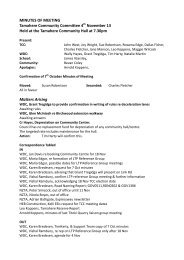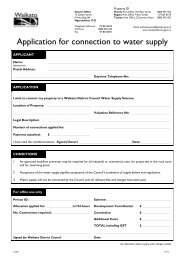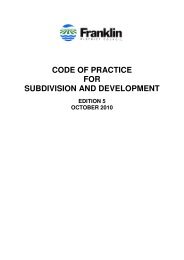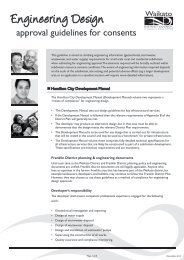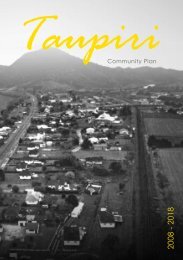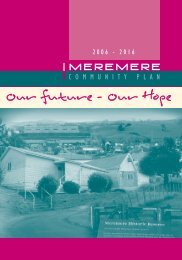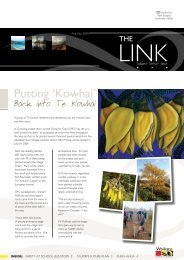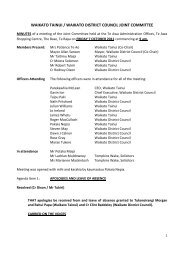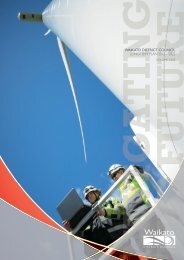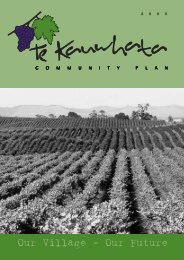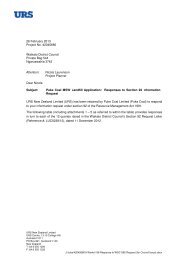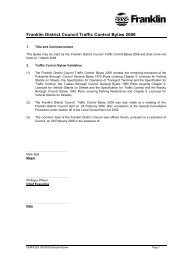1.2 Purpose of this waste assessment - Waikato District Council
1.2 Purpose of this waste assessment - Waikato District Council
1.2 Purpose of this waste assessment - Waikato District Council
- No tags were found...
You also want an ePaper? Increase the reach of your titles
YUMPU automatically turns print PDFs into web optimized ePapers that Google loves.
• A vision <strong>of</strong> zero <strong>waste</strong> is supported – but it needs to be communicated clearly to avoid putting people <strong>of</strong>f.Zero <strong>waste</strong> should be the overall vision, supported by specific targets. Prefer the term ‘resource’ to ‘<strong>waste</strong>’– should focus on opportunities and benefits• Goals and targets that focus on 2020 are still useful• Targets should be set for benefits as well as more traditional diversion objectives• Education and communication – need to reassure that recycling is actually recycled, perhaps by providinginformation about what goes where for final useThe second part <strong>of</strong> the plenary session focused on generating ideas for the topics that would form the basis <strong>of</strong>the discussions in the groups. The first four topics were the key areas <strong>of</strong> discussion at the councillor’s workshopand the group agreed they should be carried over to <strong>this</strong> workshop. From the discussion the following topicswere agreed:1. The council’s role2. Cleanfills3. Regulation4. Education & communication5. Regulation6. Incentives/levies7. Opportunities8. Economic development9. Responsibility – for targets10. Special <strong>waste</strong>s & other specific <strong>waste</strong> streams11. Illegal dumpingA.4.5Group workshop sessionThe topics developed in the plenary session and noted above were divided into three sets for one <strong>of</strong> threegroups to work on. Participants were asked to choose the group they wanted to attend based on the topicsselected for discussion in that group.The groups and topics were as follows:Group 1:Group 2:Group 3:A.4.5.1<strong>Council</strong>’s role, regulation, incentives, leviesOpportunities, economic development, responsibility for targets, education & communicationSpecial <strong>waste</strong>s, illegal dumping, cleanfills, and other <strong>waste</strong> streams.Group 1 - workshop notesThis is a summary <strong>of</strong> the points raised during the workshops. They are the views <strong>of</strong> the individual participantsand do represent council’s policy.<strong>Council</strong>’s role• Issue• Don’t want an overly prescriptive approach, but do want the council support to create a level playingfield• Potential solutions include: • The council provides a framework to support good <strong>waste</strong> management, not necessarily delivering <strong>this</strong>themselves but encouraging the private sector to work in ways that will achieve goals and objectives<strong>Waikato</strong> <strong>District</strong> <strong>Council</strong> <strong>waste</strong> <strong>assessment</strong> 201165



